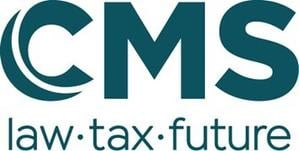The share of working-age population in the EU total population is projected to decrease from 64 % at the beginning of 2022 to 54 % in 2100, representing an overall reduction of 57.4 million persons. This will have a significant impact on the EU workforce. The EU Blue Card system therefore needs reforming to make it easier to employ highly skilled workers from outside the EU, particularly in sectors that are struggling with skills shortages.
In October 2021, the EU Council adopted the revised Blue Card Directive (2021/1883 on the conditions of entry and residence of third-country nationals for the purpose of highly qualified employment), which EU member states have two years to transpose into local law. The new rules harmonise the conditions of entry and residence for highly skilled workers and make the EU Blue Card more attractive, particularly by making the admission criteria more inclusive, facilitating mobility within the EU.
EU member states will be able to maintain national systems targeting highly skilled workers in parallel with the EU Blue Card system. However, the new rules contain several provisions aimed at ensuring a level playing field so that EU Blue Card holders and their families are not at a disadvantage compared to national permit holders.
In March 2023, the Slovak Ministry of the Interior initiated a legislative process to amend both the Act on Residence of Foreigners (No. 404/2011 Coll.) and the Act on Employment Services (No. 5/2004 Coll.), in order to transpose the revised EU Blue Card Directive aimed at making the Blue Card more attractive for use on the labour market.
The key proposed changes related to the Blue Card procedure are:
Professional qualifications are to be recognized as an alternative to the current need for university qualifications to be recognized by the respective Slovak authority. This new rule will apply to the following groups of the ISCO08 classification: (133) Information and Communications Technology Services Managers, and (25) Information and Communications Technology Professionals. It will be acceptable to present an employment agreement and confirmation when registering for the relevant social insurance or tax proving the length of the previous employment (at least 3 years of relevant professional experience within 7 years prior to the application for the Blue Card);
Reduction of the monthly salary limit from 1.5 to 1.2 times the average monthly salary of an employee in the Slovakian economy;
An increase in the maximum period for which the Blue Card can be issued from 4 to 5 years;
Change of the validity period of the Blue Card issued by another EU member state from 18 to 12 months, after which it is possible to issue the Blue Card on the territory of the Slovak Republic (long-term mobility);
Cancellation of the obligatory labour market check run by the labour office to confirm the possibility of filling a vacancy: (a) the procedure for renewing the Blue Card of a thirdcountry national who will be employed in the same job, and (b) the procedure for issuing a Blue Card to a third-country national who has been granted temporary residence for the purpose of employment and who will be employed in the same job;
Extension of a group of thirdcounty nationals who are not required to have confirmed the possibility of their filling a vacancy issued by the labour officeto: (a) holders of a Blue Card issued by another EU member state who carry out temporary work activities involving attendance at business meetings, participation in conferences or seminars, business negotiations, sales or marketing activities, researching business opportunities or participating in training and receiving education, for a period of no more than 90 days in any 180-day period (short-term mobility), and (b) holders of a Blue Card issued by another EU member state for at least 12 months (long-term mobility);
Obligation for the police to decide together within the same processing period on the application of a thirdcountry national for temporary residence for family reunification and on application for a Blue Card, if applications are submitted at the same time;
Opportunity to accumulate periods of residence on the territory of the EU member states and on the territory of the Slovak Republic, for a total length of over five years (at least two years on the territory of the Slovak Republic as the Blue Card holder) as a condition for applying for a long-term residence on the territory of the Slovak Republic.
If the new law is adopted by the Slovak parliament, an increased number of Blue Card applicants in Slovakia is expected as a result of the simplified and relaxed process. The introduction of the 5-year Blue Card will have a positive impact on the business environment, making the Blue Card more attractive and reducing the administrative burden. Positive goldplating has also been identified in this respect as the EU Blue Card Directive provides for that the Blue Card will be valid for at least 24 months. The Slovak draft law makes it possible to grant the Blue Card for a period of 5 years, increasing the validity period by 3 years.
The draft legislation is currently subject to a consultation procedure, with the proposed amendments expected to become effective on 1 July 2023.
Author of the article:
Lucia Gáťová
Associate, Attorney-at-Law
CMS Slovakia

This article has been brought to you by CMS Slovakia.



 Lucia Gáťová
Lucia Gáťová